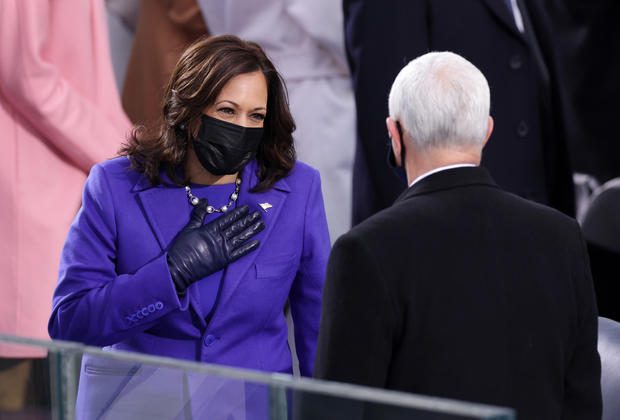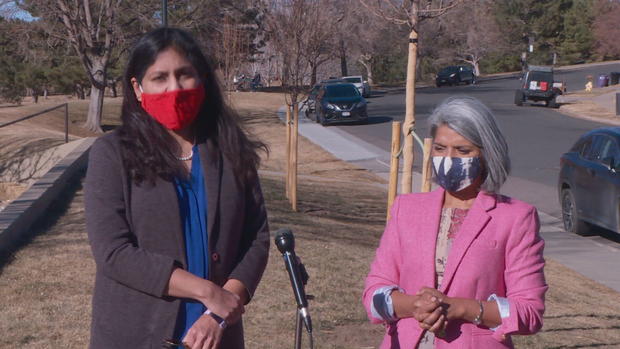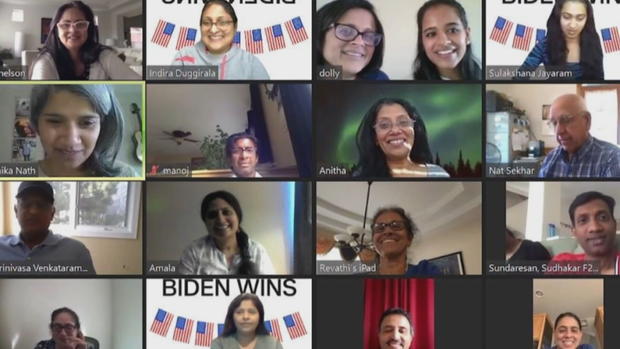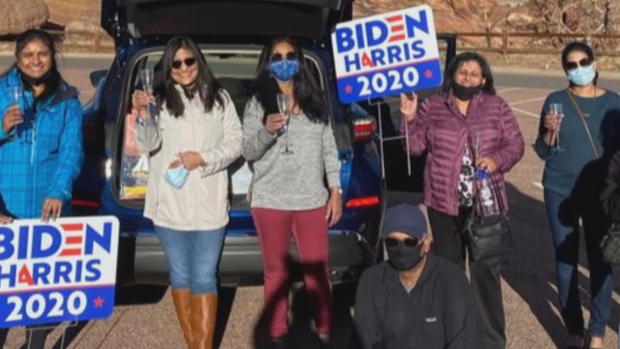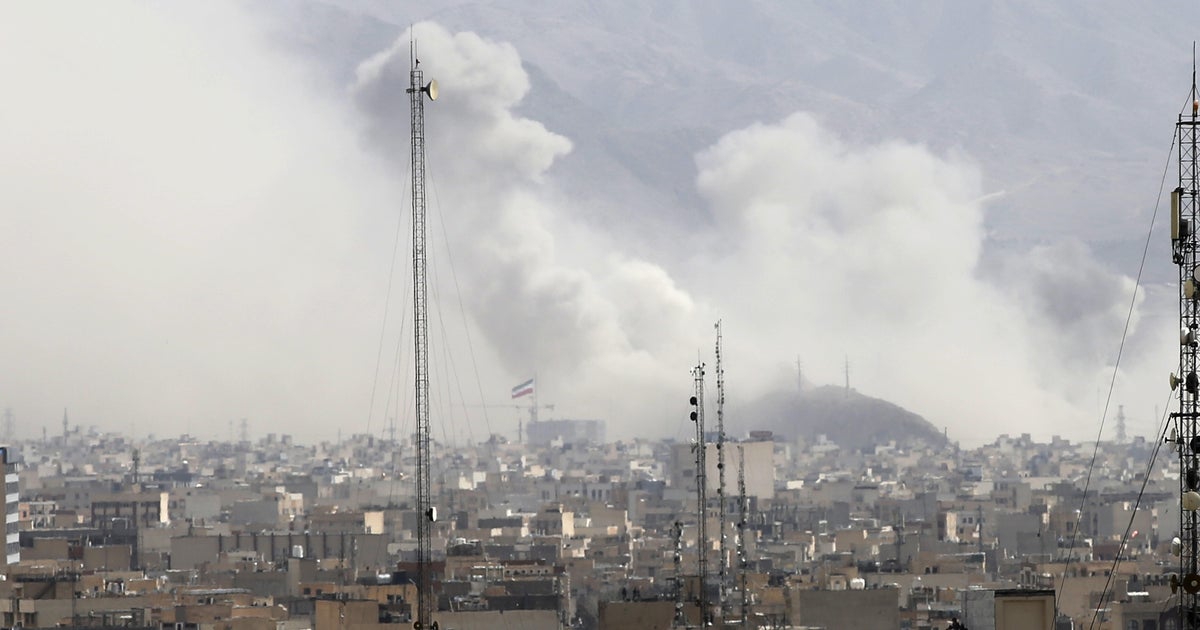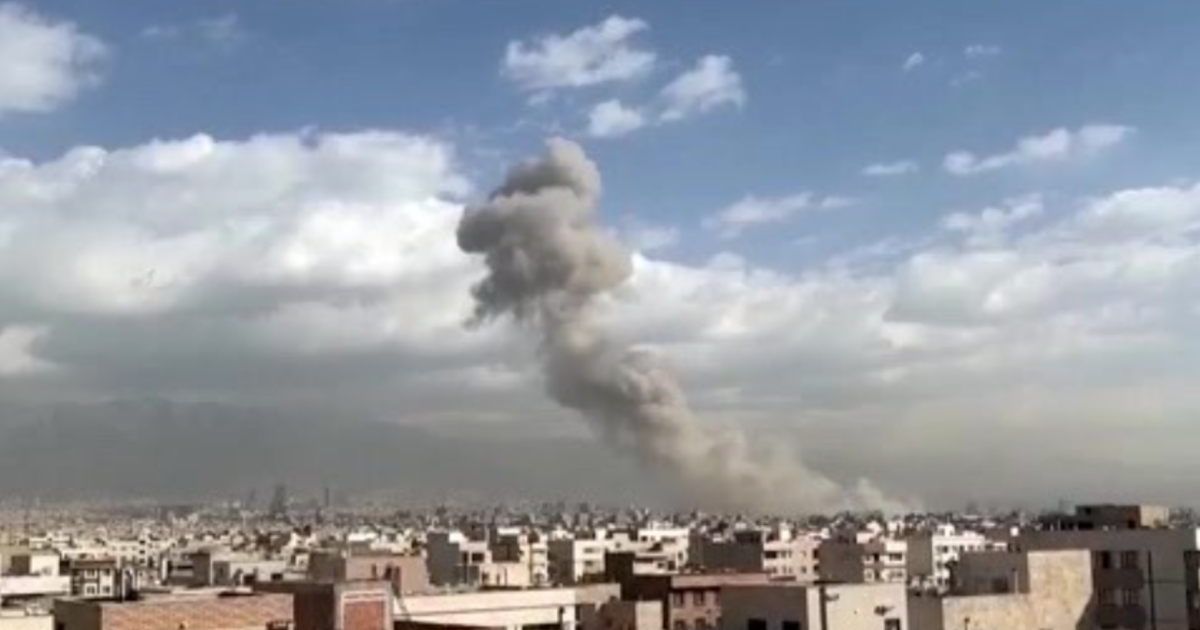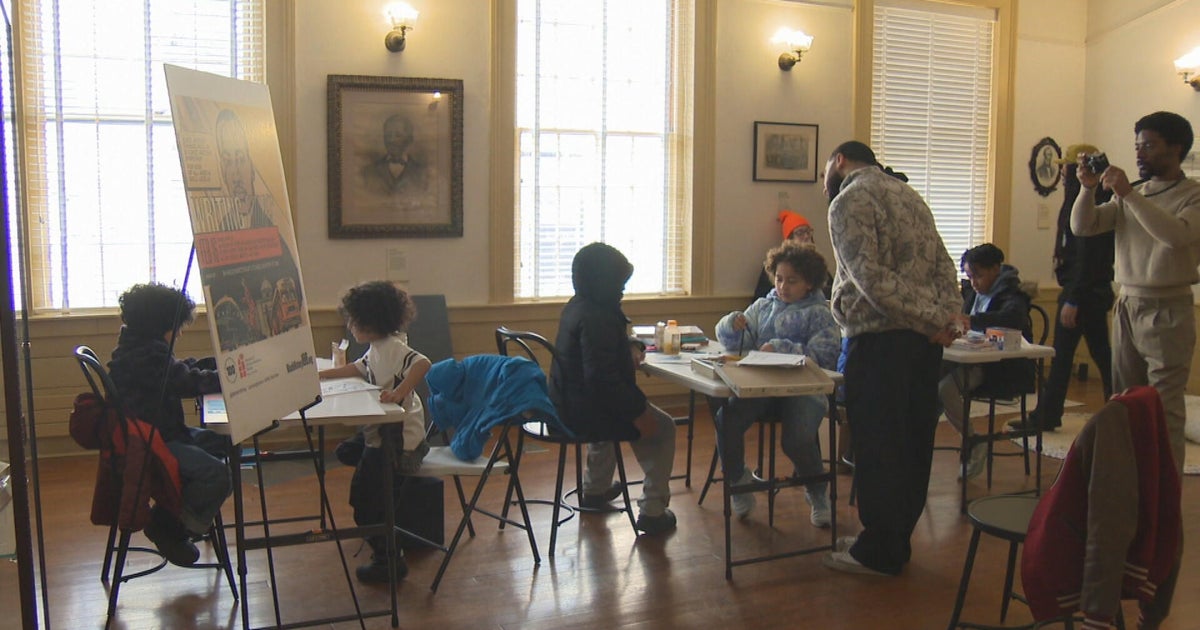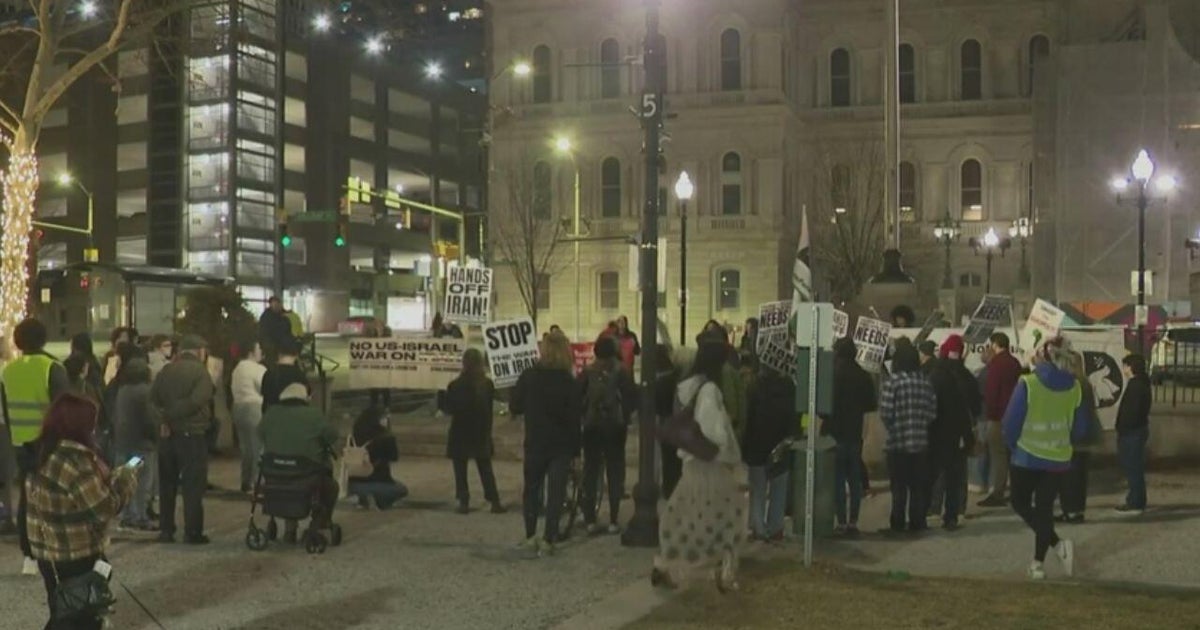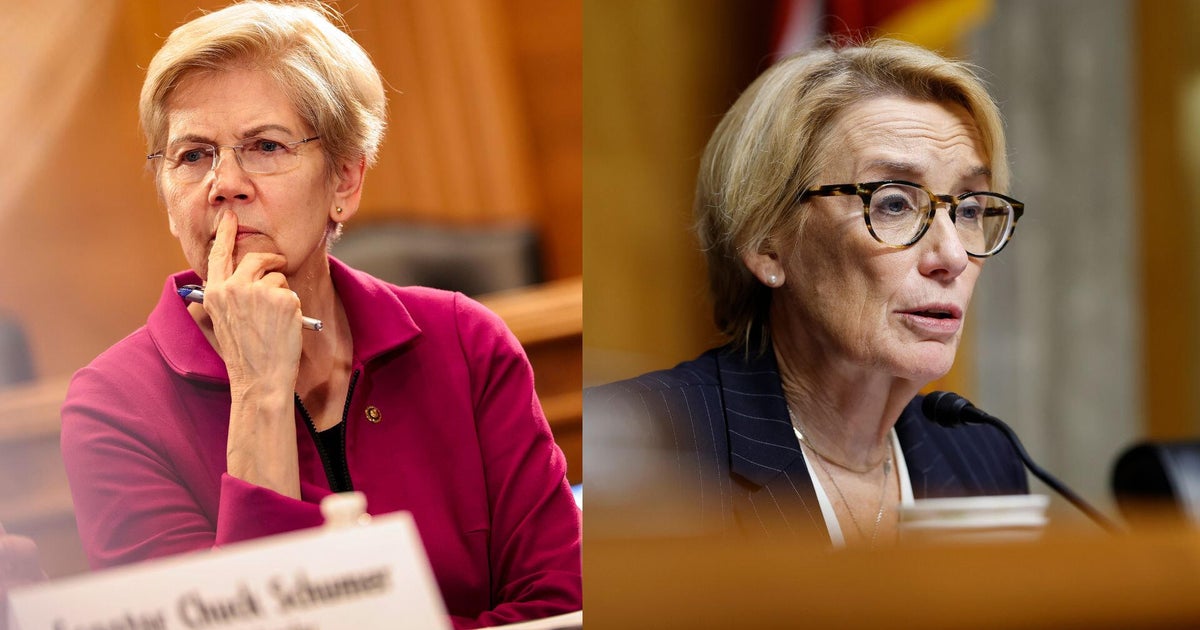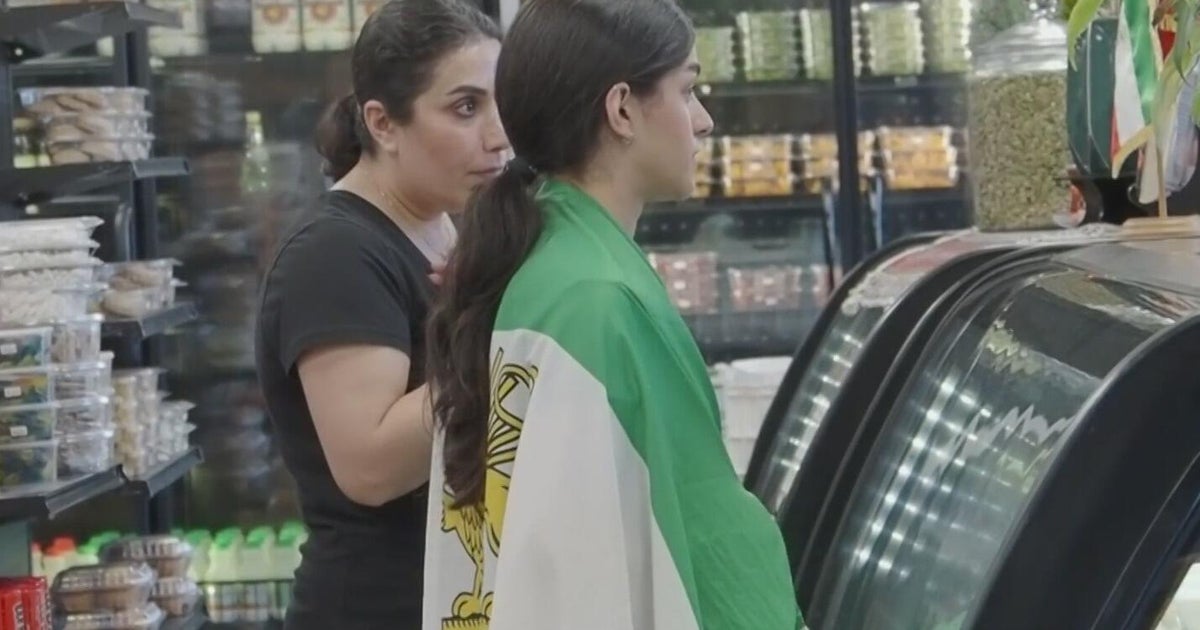South Asians In Colorado React To Kamala Harris' Swearing-In As Vice President
DENVER (CBS4) - South Asians in Colorado celebrated Kamala Harris taking the oath of office as the 49th Vice President of the United States. Harris is the daughter of an immigrant who came to this country from India.
The growing South Asian community in Colorado and the U.S. hopes Harris will show their neighbors near and far that they are a voting bloc on the rise and that South Asians can be seen in all roles of society, including leadership.
"As I was watching her getting sworn in today, it was a very surreal experience," said Indira Duggirala, a community organizer and member of the grassroots organization They See Blue. "It's a huge a deal for our community in terms of representation, we're not just the IT guys, we're not just the doctors, we can actually lead, women can lead, women can solve problems."
The political group trying to register and turn out South Asians for Democrats started in 2018, focused on California and expanded to the nation in 2020. It represents one of the fastest growing groups in the U.S. and a diverse mix of cultures from the Indian subcontinent including India, Pakistan, Bangladesh, Nepal, Sri Lanka, and the Maldives.
"It is a huge portion of humanity and we are a big chunk of the immigrants here," said Radhika Nath, co-founder of They See Blue's Colorado chapter and member of the Democratic National Committee. "There's something distinct about our identity that brings certain strengths to the fore. That has not always been obvious to other communities."
Both women came to Colorado around 20 years ago from other states and originally immigrated to the U.S. from India. While they've had careers in health care and the tech industry, community organizing takes up most of their free time these days.
Vice President Harris helps to validate the decades they've spent working in this country as professionals and gives them new hope for the future as well as the generations that will come after them. Both immigrants and their families feel like they have achieved a level of representation they may not have imagined just years ago.
"To all of us immigrants who have identities that draw from so many diverse backgrounds, this feels like a promise," Nath told CBS4 on Wednesday. "We all can aspire to be actively part of the leadership of this nation, it is such a momentous occasion."
They See Blue is a play on the term "Desi," which South Asians use to refer to themselves outside of their home countries. Harris has raised the profile of all South Asians in the U.S., creating an opportunity for the country to learn more about this community.
The Biden Administration has also appointed several South Asians to the executive branch, which Duggirala and Nath both take pride in as well. Just like America is known for its many cultures and backgrounds, the Indian subcontinent has a similar model in its combination of unique differences and common traits.
"Desi is the term we South Asians use to refer to our compatriots, our diaspora," Nath explained. "There's homogeneity and heterogeneity and that's the diversity that is so American also."
Nath just got back to Colorado from a trip to India and she saw the celebrations already happening for Harris. Her family lives in the southern part of the country where they just finished observing a harvest festival that is considered a time of renewal. She says it is fitting that people in India are marking change as the U.S. does the same. Both women believe that Harris symbolizes a new direction for all who aspire to public service. They also hope she will help strengthen the bond between the world's two largest democracies.
"This gives us a perfect example for our community and everyone else that merit is recognized," Duggirala told CBS4 on Wednesday. "It's not about who you know but what you do, and what you stand for."
South Asian women also think it is important to acknowledge this country following in the footsteps of their homelands, which have elected multiple female leaders to their highest offices including Indira Gandhi in India and Benazir Bhutto in Pakistan. It's another example of how this community in the U.S. feels a shared story from their various places of origin.
"We are bound by similar cultures and languages and customs and traditions that are beyond boundaries," Duggirala said.
When it comes to food, fashion, and art there can be some noticeable difference among South Asians. But there is more that they share in common, and that collective identity only adds to the melting pot of America.
Nath says it's some needed masala, or spice, for the U.S. So far, South Asians have primarily voted one way in elections with most identifying as liberals. But President Trump did connect with South Asians in this country and abroad. These community organizers say their highest priority is improving participation overall, because only about a third voted in past elections.
Beyond politics, they've found policy connects with this group so the focus must be on issues and not candidates.
"Going forward, expect to see a lot more South Asians coming out and voting, a lot more of them organizing, a lot more of them making calls, fundraising, donating, and running for office," Nath said. "As a community, we are just getting started, we are getting on the electoral map so to speak."
For more information about They See Blue, visit their website or Facebook page.
